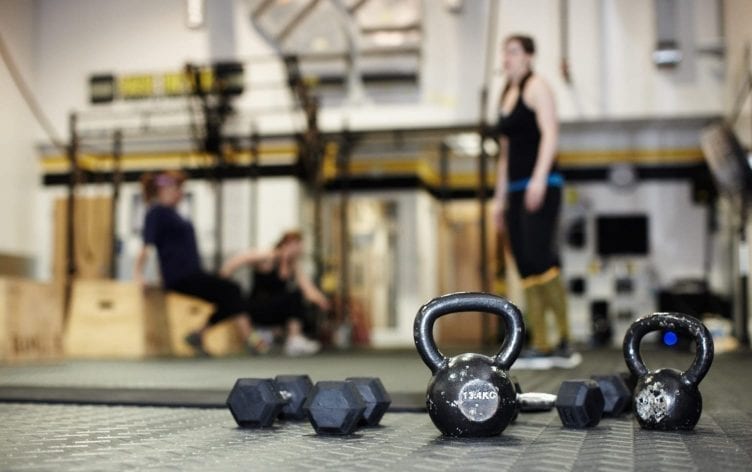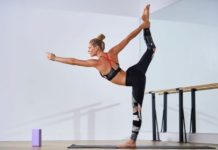
Gyms can be intimidating places causing otherwise motivated people to avoid them. From feeling like everyone knows what they’re doing to feeling like everyone has a perfect body, there are a plethora of reasons to pass. Luckily more inclusive alternatives are popping up in the form of body-positive gyms.
“I am a plus-sized woman and a personal trainer for over 12 years,” says Morit Summers, owner of Form Fitness in Brooklyn, New York. “So many times people are uncomfortable with themselves, and then you’re walking into a place where all the ads are filled with size-2 models, and that’s not a comfortable place to be.”
In response, Summers and others are opening studios and gyms across the nation that are inclusive or that identify as being “body positive” or “weight neutral.”
“I want people to walk in and feel like they can become stronger and more proud of their bodies and what their bodies are capable of,” Summers explains.
Similarly, at Comfy Fitness in Chicago, trainers aim to help clients feel confident and comfortable in their own skin. “The ability to be fit and healthy is innately a part of each and every one of us,” says co-founder and certified trainer Kira Macoun. “There’s no one way for a body to look. Our gym is about being amazed at how badass our bodies are.”
WHAT MAKES THEM DIFFERENT
Every place is different, but if you walked into one of these facilities, you likely wouldn’t notice a difference in the workouts. There are dumbbells and suspension trainers and battle ropes and people smiling and sweating and working hard.
However, both Summers and Macoun say they tend to get a lot of beginner exercisers. In those instances, they take the time to fully educate them on form and their bodies.
“Clients tell us they have learned more about their bodies than they ever have in their whole life, and that they love fitness and have never stuck to a regimen for as long as they have at Comfy Fit,” says Macoun, adding that they have a “massive” retention rate.
“A big reason why people don’t get an annual physical or delay going to the doctor when they’re sick is because they’re afraid the doctor will say something about their weight, recommend weight loss or shame them for their weight. I think the same thing happens in gyms,” says dietitian and personal trainer Jessi Haggerty, who offers a body image coaching course for fitness professionals. “People feel discriminated against because of their size and because they don’t fit the ‘what a fit person looks like’ standard. They don’t feel they belong in mainstream fitness spaces.”
If that jibes with you, you may want to search for gyms that identify as “inclusive”, “weight neutral” or “body positive.” But check out their website and any reviews, and talk to the staff, too. Unfortunately because “body positivity” is trendy, some use that term for marketing but are not truly accepting of all bodies, regardless of shape, size, gender or ability level, Haggerty says.
She encourages finding a trainer who sees you as an individual and helps you have a positive relationship with exercise and food. “As long as the gym is using the [body positive] movement as it was intended, the biggest benefit is that people can actually focus on what matters,” she says. “You don’t have to get bogged down in the minutiae of how many inches or pounds you’re losing, and you end up being more intrinsically motivated to exercise.”
The intended result is it will make you not only work out consistently, but you will also feel more confident outside of the gym.







